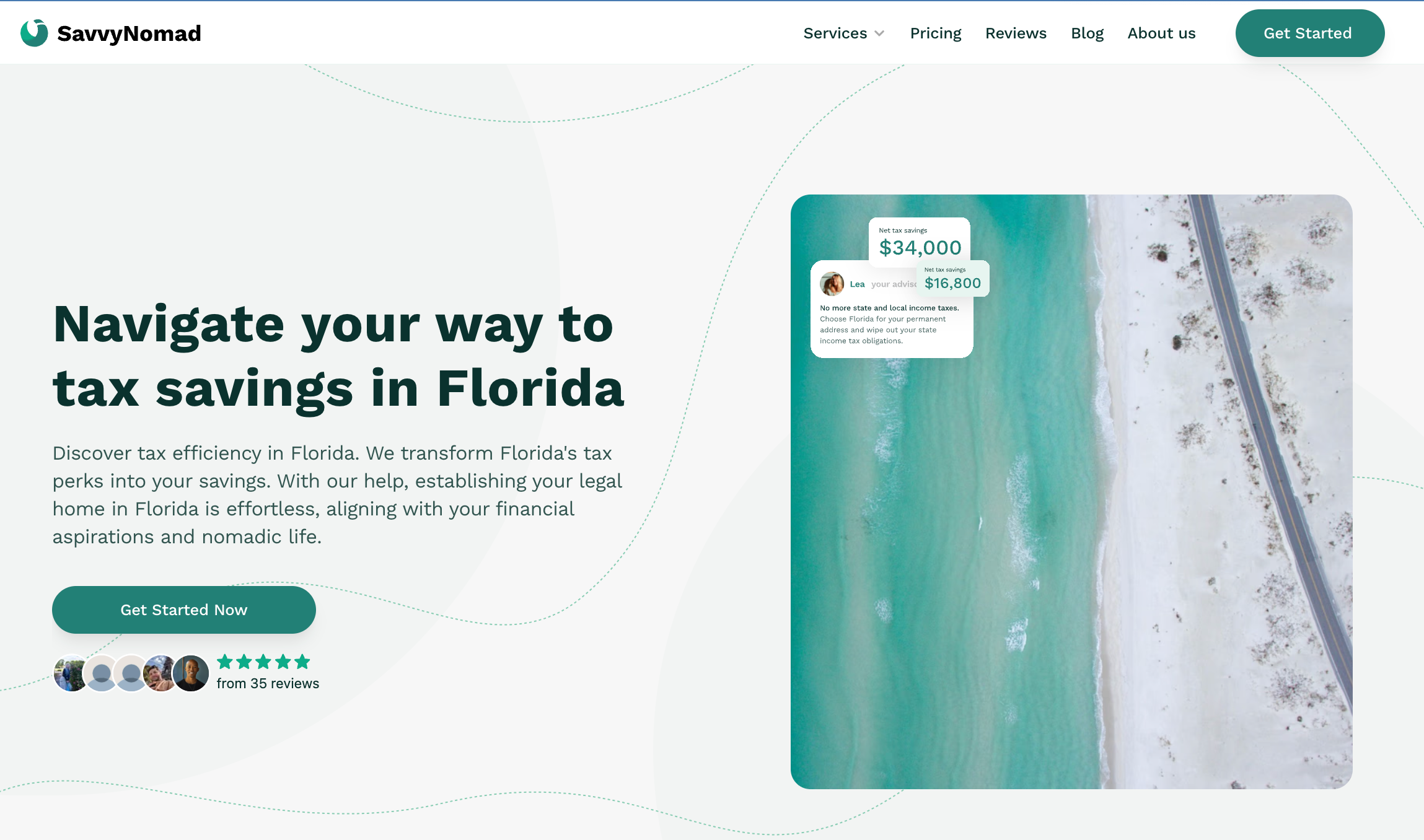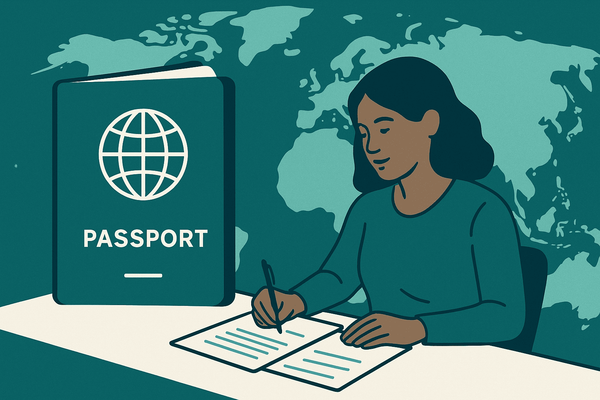How to keep a US bank account while living abroad

If you’re living abroad but want to keep your US bank account, you’re not alone! Many American expats find it handy (and sometimes necessary) to hold onto their US bank accounts.
This way, you still have easy access to your funds in the US, can handle payments back home, and streamline things like tax filing.
Maintaining account balances is crucial for security and trust, especially for expats who may have concerns about the safety of their funds.
In this article, we’ll explore why maintaining a US bank account matters and how you can set it up for success—even if you’re miles away. Let’s dive in!
Why keeping a US bank account is a good idea
Having a US bank account can make living abroad much easier in several ways. For one, it allows easy access to funds back home—perfect for handling US-based expenses, paying bills, and managing loans or credit cards.
Keeping bank accounts open also helps in maintaining a US credit score, which is crucial for future financial activities in the US, and facilitates US transactions seamlessly.
A US bank account can also simplify tax filing since most IRS refunds and social security benefits are deposited directly into US accounts.
Moreover, some international transactions might be less expensive and faster, saving you time and fees. It’s a practical link to your financial life at home, providing security and convenience when you need it most.
Challenges in keeping a US bank account while abroad: the impact of Patriot Act restrictions
In recent years, banks have ramped up enforcement of the USA Patriot Act, specifically its rules around banking addresses.
Originally designed to help curb financial crime, these regulations require banks to verify account holders’ physical addresses, meaning traditional mail forwarding services or P.O. boxes are no longer accepted as primary addresses.
This shift has led many expats to face account freezes or closures if they can’t provide a standard, residential US address. Moreover, using a foreign address can trigger banks to freeze or close accounts, as they may suspect the account holder is an expat. Understanding compliance rules and regulations is crucial to avoid these complications.
Even if you rarely use your US account, banks now regularly monitor and may suspend accounts if they detect mail forwarding, P.O. box, or foreign addresses, which don’t meet compliance standards.
Navigating these restrictions is a major hurdle, but several address options, like family addresses or certain virtual residency services, can help. Up next, we’ll look at some of these workarounds and other steps to help keep your US bank account active and accessible.
Steps to keep your US bank account active
Maintaining a US bank account as an expat takes a few intentional steps to meet address requirements and help maintain smooth account access from abroad. It is crucial to choose a financial institution that meets the specific needs of expatriates to reduce the risk of blocked transactions or account restrictions.
Maintain a US address
Due to regulations like the Patriot Act, banks now require a standard residential US address. One common solution is to specialized domicile service, which provides a compliant residential address for expats.
A residential address like this can help banks complete CIP/KYC checks, but acceptance always varies by institution and policies can change over time. Using a foreign address, or an address that’s clearly flagged as a mail-forwarding location, can lead some banks to freeze or close accounts, so understanding and following their compliance rules is crucial.
These services are designed to meet banking and legal requirements and typically include options for mail forwarding. Using a foreign address as your primary banking address can lead some banks to freeze or close your account, especially if their systems flag it as incompatible with US residency requirements, so understanding their rules is crucial.
If a domicile service isn’t for you, another option is to use the address of a trusted family member or friend. However, keep in mind that banks often require proof of residence, such as utility bills or lease agreements, which you won’t have access to if you’re using someone else’s address. This approach can work short-term, but it might not be the most reliable for long-term banking.

Choose an expat-friendly bank
Some banks are better equipped to support international customers. Look for banks with low foreign transaction fees, minimal service fees, and extensive online banking options. Many expats choose banks with responsive customer support that can handle inquiries from abroad efficiently. Additionally, credit unions can be a great option for expats, offering lower fees and simpler account management compared to traditional banks.

Set up digital statements and alerts
Opting for paperless statements and email or text notifications can simplify account management from abroad. With these alerts, you can track all account activity and catch any unusual transactions before they lead to account issues.
Utilize online and mobile banking
Online banking tools are essential for expats to manage their accounts remotely. Familiarize yourself with the bank’s mobile app and website, which will help you monitor balances, transfer funds, and pay bills from anywhere.
Additionally, linking a brokerage account can enhance your banking services by providing seamless integration and potentially lower fees.
How to maintain a US address while living abroad
Maintaining a reliable US address is key for keeping your US financial accounts in good standing. Here are some options to consider:
Domicile services

Domicile services, such as SavvyNomad, offer a residential U.S. street address that is suitable for many banking and legal-documentation purposes.
They can help you establish domicile in a state like Florida, which has no state personal income tax, and provide a bona fide residential, non-CMRA address that can help banks and brokers complete CIP/KYC checks. Acceptance still varies by institution, and the address is provided for documentary and correspondence purposes related to your own client-direct applications — it does not by itself guarantee account approval, ongoing compliance, or any particular tax outcome.
Family or friend's address
Using a relative's or close friend's residential address is a common approach, but remember, banks may require proof of residence, such as utility bills, which may be difficult to provide if you don't actually live there.
Specialized mail forwarding services
While some mail forwarding services offer addresses for receiving documents, most of these are designated as Commercial Mail Receiving Agencies (CMRA), which banks often reject as a primary residential address. This can be helpful for regular mail, but it may not be sufficient for official financial purposes.

Offshore Banking as a US Expat
Offshore banking can be a viable option for US expats looking to manage their finances more efficiently while living abroad. By opening an offshore bank account, expats can enjoy greater flexibility and access to their funds, as well as potentially lower fees and better interest rates.
However, it’s essential to research and understand the regulations and requirements surrounding offshore banking, including tax implications and reporting obligations.
Some popular offshore banking destinations for US expats include:
- Switzerland: Known for its banking secrecy and stability, Switzerland is a popular choice for offshore banking.
- Singapore: This Asian financial hub offers a range of banking options and a favorable tax environment.
- Panama: With its dollarized economy and favorable banking laws, Panama is a popular choice for offshore banking.
When considering offshore banking, US expats should:
- Research the local banking regulations and laws
- Understand the tax implications and reporting requirements
- Choose a reputable and secure bank
- Consider the fees and charges associated with the account
- Ensure the bank has a good reputation and is well-regulated
By carefully selecting an offshore bank account, US expats can optimize their financial strategy and enjoy greater financial freedom while living abroad.
Alternative options for expats to manage finances abroad
Beyond US bank accounts, expats have other options to manage finances while living abroad. Fintech banks offer services tailored for expats, including international money transfers, which are priced significantly lower than those of traditional banks.
Offshore bank accounts provide financial flexibility and asset protection, making them a valuable option for U.S. expats managing their finances abroad.
International bank accounts
Many global banks offer multi-currency accounts with low exchange fees and flexible transfers, but for US citizens, they must comply with rules like FATCA (Foreign Account Tax Compliance Act).
This means these banks share account information with the IRS, and you may also need to report accounts through FBAR (Foreign Bank Account Report).
Expats should consider the necessary documentation and differences in requirements when opening accounts with foreign banks.
Virtual banks and fintech services
Online-only banks like Wise or Revolut are useful for managing funds across borders.

However, if you're an American, they generally require a US residential address or another primary address in a different country, making compliance with US rules necessary.
Expat-specific financial services
Some financial institutions offer accounts tailored for expats, with multi-currency features, easy access to international transfers, and often lower transaction fees. Look for providers experienced in US tax compliance and international banking rules for smoother management.
Maintaining specific balances in linked banking, investment, and retirement accounts can also provide benefits such as waived service fees.
Common challenges and solutions
US expats and non-citizens may face several challenges when managing their finances, including:
- Foreign transaction fees: Many banks charge fees for international transactions, which can add up quickly. Solution: Look for banks that offer low or no foreign transaction fees.
- Limited access to credit: US expats may find it difficult to access credit or loans while living abroad. Solution: Consider working with a bank that offers international credit options or seeking alternative lenders.
- Tax implications: US expats may be subject to tax implications on their foreign-earned income. Solution: Consult with a tax professional to understand your obligations and optimize your tax strategy.
By addressing these challenges proactively, US expats and non-citizens can better manage their finances and avoid potential pitfalls.
Tips for US expats
When managing your finances as a US expat, consider the following tips:
- Keep a US bank account open to maintain a US credit score and access to US-only products and services.
- Consider opening a foreign bank account to manage everyday expenses and avoid foreign transaction fees.
- Research and understand the local banking regulations and laws in your host country.
- Choose a reputable and secure bank that meets your needs.
- Consider working with a financial advisor to optimize your financial strategy.
By following these tips, US expats can effectively manage their finances and make the most of their time abroad.







